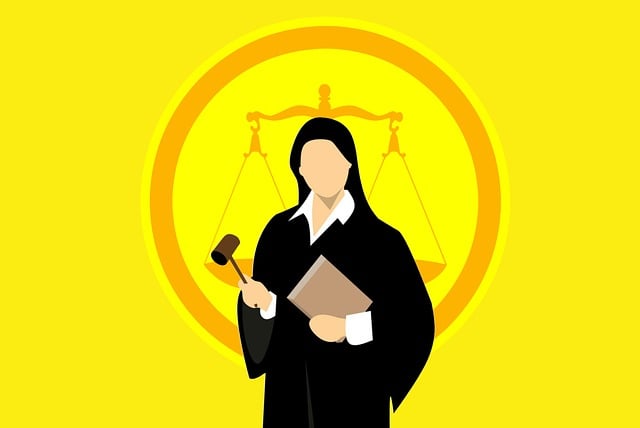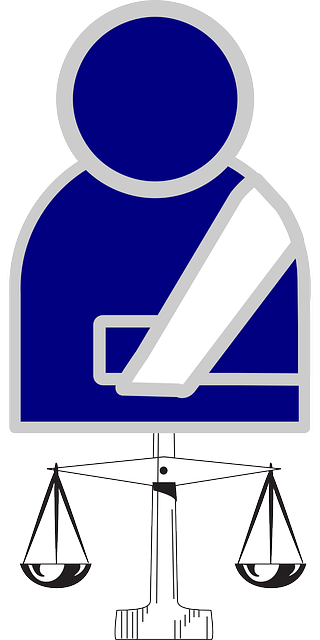Psychological Injury Lawyer: Navigating Mediation for Effective Legal Resolution

Mediation offers a cost-effective alternative to court for resolving disputes, with a neutral third…….
In an era where mental health awareness is gaining critical momentum, the role of a Psychological Injury Lawyer has emerged as a pivotal profession. This comprehensive article aims to dissect and explore the multifaceted world of legal advocacy focused on psychological injuries, offering readers a profound understanding of its intricacies, impact, and potential. By delving into various aspects, from historical foundations to global trends and future prospects, we will uncover the significance of these lawyers in securing justice and support for individuals facing mental health challenges.
Definition: A Psychological Injury Lawyer is a legal professional specialized in advocating for individuals who have suffered psychological or emotional harm due to various circumstances, such as accidents, trauma, medical negligence, or discriminatory practices. These lawyers navigate complex legal systems to ensure their clients receive fair compensation, accountability, and access to necessary support services.
Core Components:
Legal Expertise: They possess a deep understanding of tort law, personal injury claims, and mental health legislation. This knowledge enables them to build strong cases and navigate legal procedures effectively.
Psychological Sensitivity: A key aspect is the ability to empathize and understand the nuances of psychological injuries. Lawyers in this field should be attuned to the unique challenges faced by their clients, ensuring a supportive and non-judgmental approach.
Advocacy and Negotiation Skills: They act as powerful advocates for their clients, often negotiating with insurance companies, medical professionals, and other parties involved. Effective communication and persuasion are vital to achieving favorable outcomes.
Case Management: From gathering evidence to coordinating with mental health professionals, these lawyers manage various aspects of a case, ensuring all legal and clinical requirements are met.
The concept of holding entities accountable for psychological injuries is not new. Historical records trace back to ancient civilizations where legal systems addressed emotional distress in varying degrees. However, the modern-day iteration of Psychological Injury Law has evolved significantly over the past few decades. Key milestones include:
International Reach: Psychological Injury Law has transcended geographical boundaries, with similar principles and practices observed globally. However, the level of development varies across regions, influenced by cultural norms, healthcare systems, and legal traditions.
Key Trends:
Increasing Awareness and Acceptance: There is a growing recognition of psychological injuries as legitimate claims, leading to more acceptance in various jurisdictions.
Digitalization of Legal Services: The rise of remote work and online platforms has prompted lawyers to adopt digital tools for case management and client communication, enhancing accessibility and efficiency.
Specialization Deepens: Many law firms are establishing dedicated psychological injury practice groups, reflecting the growing demand for specialized legal services.
Regional Variations:
| Region | Notable Features |
|---|---|
| North America | Strong advocacy for mental health rights, with well-established case law. The US has seen significant cases shaping national policy. |
| Europe | Comprehensive legislation protecting individuals with mental health issues from discrimination and ensuring access to services. |
| Asia Pacific | Rapidly growing field, with countries like Australia leading the way in specialized legal education and practice. |
| Middle East & Africa | Varies by country, with some regions witnessing increased awareness and legislative changes, while others lag in formal recognition. |
Market Dynamics: The psychological injury law sector is a niche yet expanding area within the broader legal industry. According to a report by Law Business Analysis (2022), the global legal market, including specialized practices, is projected to reach $1.7 trillion by 2025, with mental health-related cases contributing significantly.
Investment and Funding:
Economic Impact: The field contributes to economic growth by:
Online Case Management: Legal practice management software enables efficient case tracking, document storage, and client communication. This streamlines processes, allowing lawyers to manage a larger caseload.
Digital Evidence Analysis: Advanced data analytics tools can analyze large datasets to identify patterns and trends in psychological injury cases, aiding in strategic decision-making.
Telehealth and Remote Legal Services: The COVID-19 pandemic accelerated the adoption of virtual consultations, making legal services more accessible, especially for individuals in remote areas or with limited mobility.
AI and Predictive Analytics: Artificial Intelligence (AI) has the potential to revolutionize case predictions, risk assessments, and document review processes, although ethical considerations must be addressed.
International Conventions: Organizations like the World Health Organization (WHO) and the United Nations (UN) have played a pivotal role in drafting conventions and resolutions addressing mental health rights and discrimination. These international agreements set global standards, which individual countries then translate into domestic legislation.
Domestic Legislation: Various countries have enacted laws specific to psychological injury cases:
Challenges in Harmonization: Due to cultural and legal diversity, creating uniform global standards presents challenges. Different jurisdictions interpret and enforce laws differently, impacting the consistency of protection and support for individuals with mental health issues.
Primary Challenges:
Stigma and Misunderstanding: Despite increasing awareness, stigma surrounding mental health remains a significant barrier, affecting victims’ willingness to seek legal assistance.
Complex Case Proofs: Psychological injuries can be subjective and challenging to prove, requiring robust evidence and expert testimony, which may not always be readily available or affordable.
Lack of Specialized Knowledge: Not all lawyers possess the necessary expertise in psychological injury law, leading to subpar representation for clients.
Criticisms and Strategies:
Case Study 1: Smith v. CorporateX (USA)
A client, Ms. Smith, suffered severe anxiety and depression after being subjected to years of workplace bullying by her employer, CorporateX. The psychological injury lawyer represented her in a lawsuit, presenting extensive evidence of the harassment and its impact on her mental health. The case resulted in a substantial settlement, setting a precedent for holding employers accountable for psychological harm.
Key Takeaways:
Case Study 2: Johnson v. Government Healthcare Agency (Australia)
Mr. Johnson, a veteran, developed post-traumatic stress disorder (PTSD) due to his military service but faced bureaucratic hurdles in accessing appropriate treatment under the existing healthcare system. The lawyer successfully argued that the agency’s failure to provide timely and adequate care constituted negligence, leading to improved access to specialized mental health services for veterans.
Impact:
Emerging Trends:
Mental Health Technology: The integration of technology in mental health care will likely drive new legal considerations, such as data privacy and teletherapy regulations.
Social Media and Online Harassment: As digital platforms evolve, so does the need for specialized legal advice on cyberbullying, online harassment, and their psychological impact.
Cross-Border Cases: With increasing global connectivity, international psychological injury cases may become more common, requiring lawyers to navigate complex jurisdiction issues.
Growth Areas:
The field of Psychological Injury Law is a dynamic and essential component of modern legal systems, ensuring that individuals suffering from mental health-related harm receive justice and support. As society continues to prioritize mental well-being, these lawyers play a pivotal role in shaping policies, holding entities accountable, and advocating for victims’ rights.
By addressing challenges, embracing technological advancements, and fostering collaboration, the profession can further enhance its impact. The future prospects for Psychological Injury Law are promising, with potential for growth, innovation, and positive social change, ultimately contributing to a more inclusive and supportive legal landscape.
Q: What types of psychological injuries do these lawyers handle?
A: Psychological injury lawyers address various mental health-related claims, including anxiety, depression, PTSD, emotional distress, and discrimination due to mental health status.
Q: How do I choose a qualified psychological injury lawyer?
A: Look for attorneys with specialized training and experience in this field. Check their track record, reviews, and credentials. Ensure they have expertise in relevant areas based on your specific case.
Q: Can psychological injury cases be settled out of court?
A: Absolutely. Many cases are successfully resolved through negotiations or alternative dispute resolution methods, allowing for quicker outcomes and cost savings. However, litigation is also an option when necessary.
Q: Are there any costs associated with hiring a psychological injury lawyer?
A: Costs can vary, but many lawyers offer contingency fee arrangements, meaning they only charge if the case is successful. Initial consultations are often free, and you should discuss fees openly before retaining their services.
Q: How can I prepare for my meeting with a potential psychologist injury lawyer?
A: Gather all relevant medical records, legal documents, and evidence related to your case. Prepare to discuss your experiences and the impact they had on your life. Being organized will help ensure a productive consultation.

Mediation offers a cost-effective alternative to court for resolving disputes, with a neutral third…….

When seeking legal representation for psychological injuries, a psychological injury lawyer is essen…….

Psychological injury lawyers are essential for workers experiencing mental health issues due to work…….

Psychological injuries, invisible but profound, caused by trauma or stress, are gaining legal recogn…….

Psychological injury, a hidden trauma, is a legitimate legal harm occurring in diverse scenarios. Sp…….

Psychological abuse can cause significant mental health issues, requiring specialized legal help fro…….

Psychological injuries, such as anxiety, depression, and PTSD, often go unnoticed in personal injury…….

Psychological injury lawyers specialize in compensating victims with structured settlements for non-…….

A psychological injury lawyer is essential for navigating complex mental health claims, utilizing me…….

Psychological injury lawyers specialize in navigating complex legal issues related to invisible trau…….